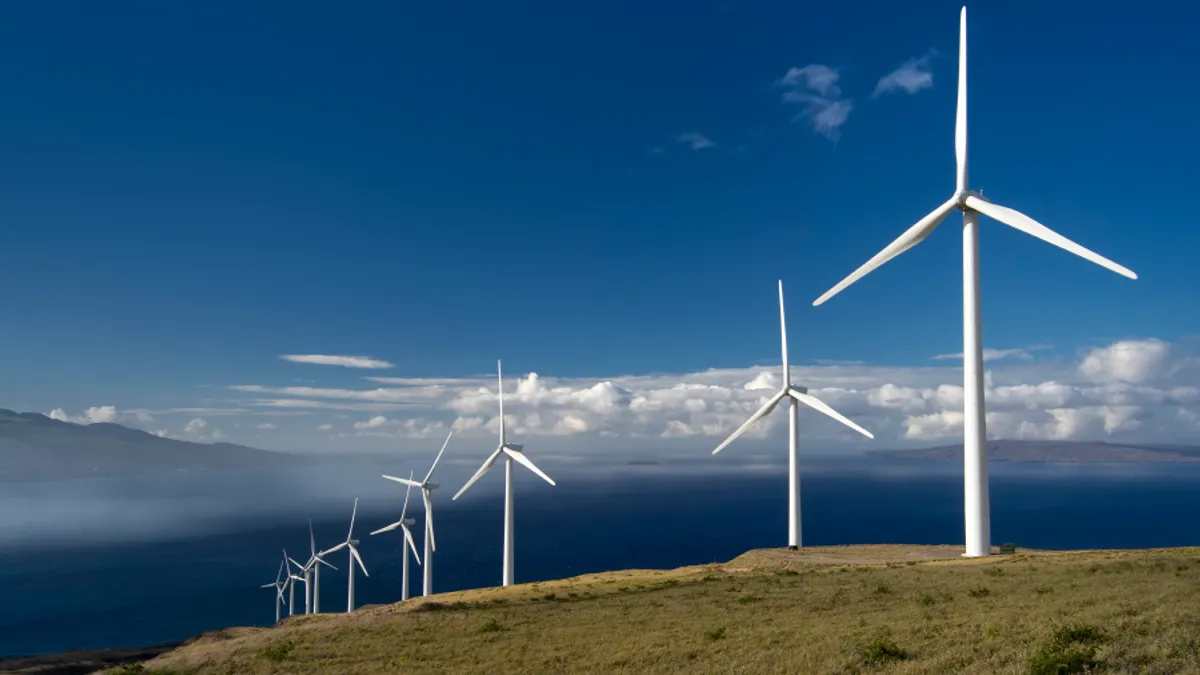Dive Brief:
- Renewable generation has cracked a milestone, according to the U.S. Energy Information Administration, with solar and wind providing 10% of the country's generation last month.
- Those resources will probably provide 10% again for April, EIA said, while making up about 7% of the United States generation in 2016.
- Wind generation contributed about 400% more than solar, as almost all states have more of the former resource. Of states with significant amounts of renewable energy, only California and Arizona had more solar generation than wind in 2016.
Dive Insight:
The milestone is seasonal, but non-hydro renewables have cracked 10% of the United States generation. While the double-digit portion will likely wane as demand ramps up in the hot summer months, the achievement is a reminder of the rapid growth of green energy.
Wind-powered generating units in Texas and Oklahoma often have their highest output in spring months, while wind-powered generators in California are more likely to have their highest output in summer months.
Monthly solar output is highest in the summer months, regardless of location, because of the greater number of daylight hours.
In 2016, Texas accounted for the largest total amount of non-hydro renewable electricity generation—but almost all of it came from wind. Texas generates more wind energy than any other state, EIA noted, but as a share of the state’s total electricity generation, wind and solar output was highest in Iowa (37% of 2016 generation).
Wind and solar resources provided at least 20% of electricity in six other states last year.
While the United States is not likely to reach 10% renewables on an annual basis yet, the country is getting close. According to EIA's most recent Short-Term Energy Outlook, non-hydropower renewables are forecast to provide 9% of electricity generation in 2017 and nearly 10% in 2018.
EIA said it expects coal's generation share to rise from 30% in 2016 to 31% in 2017 and 2018. Natural gas' share will decline from 34% in 2016, to less than 32% in 2017 and 2018, "as a result of higher expected natural gas prices."
The agency said generation share of hydropower is forecast to be nearly 8% in 2017 and 7% in 2018. The nuclear share of generation remains just under 20% in both 2017 and 2018.














